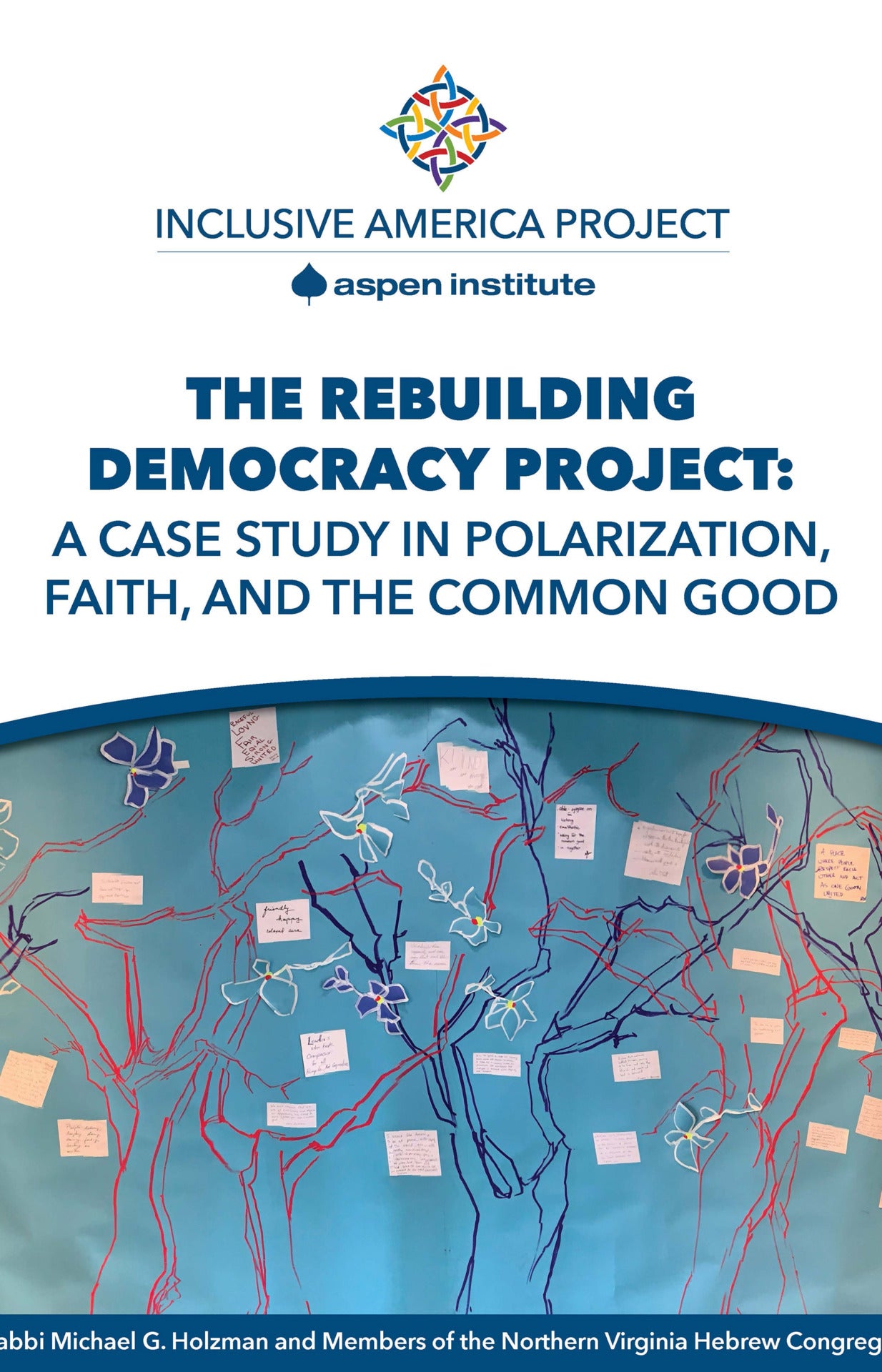According to lead author Rabbi Michael G. Holzman, civic engagement has always been an integral aspect of Judaism. Today, American Jewish communities span the political spectrum while also grappling with the same forces of polarization that stress nearly every house of worship in America. In response to rising polarization, distrust, and hate crimes, members of the Northern Virginia Hebrew Congregation (NVHC) developed the Rebuilding Democracy Project to explore how specific aspects of Judaism’s traditions apply to the myriad conversations of American political life.
Although NVHC grounds its work in Jewish prayer, Torah study, and Jewish liturgical traditions, their methods can be adapted to many other faith traditions, communities, and situations. By applying what they call the 10 Faith Habits for Effective Citizenship to their communal disagreements, they developed programs that are not intended to win one faction over to the other. Rather, they serve to strengthen and deepen relationships and community ties. They aim to make conversations about political differences more civil and humane, and because these methods have no inherent political bias, they are well-suited to help communities across the ideological spectrum break through toxic polarization and engage in productive and respectful debate.
If you have any questions or would like to learn more, please reach out to us at religionandsociety@aspeninstitute.org.
Tweet Religion in America is often portrayed as divisive, and subject to political and social manipulation…but it’s also uniquely grounded in traditions and values that cut across party lines. Learn what this means for your congregation in @AspenReligion’s new case study with @NVHCReston: https://bit.ly/3wyLWRB
Tweet Faith communities are not immune to rising polarization, distrust, and hate crimes. But, @NVHCReston & @AspenReligion know they have a unique opportunity to build a more #InclusiveAmerica. https://bit.ly/3wyLWRB
Tweet “We believe that faith institutions can reshape our understanding of American citizenship and turn America away from extreme division.” Learn how with a new case study from @NVHCReston and @AspenReligion: https://bit.ly/3wyLWRB
Tweet When a Virginia synagogue (@NVHCReston) set out to see if religion can help heal democracy, they discovered surprising results. See what they learned and how it applies to your own community w/ a new case study from @AspenReligion: https://bit.ly/3wyLWRB


